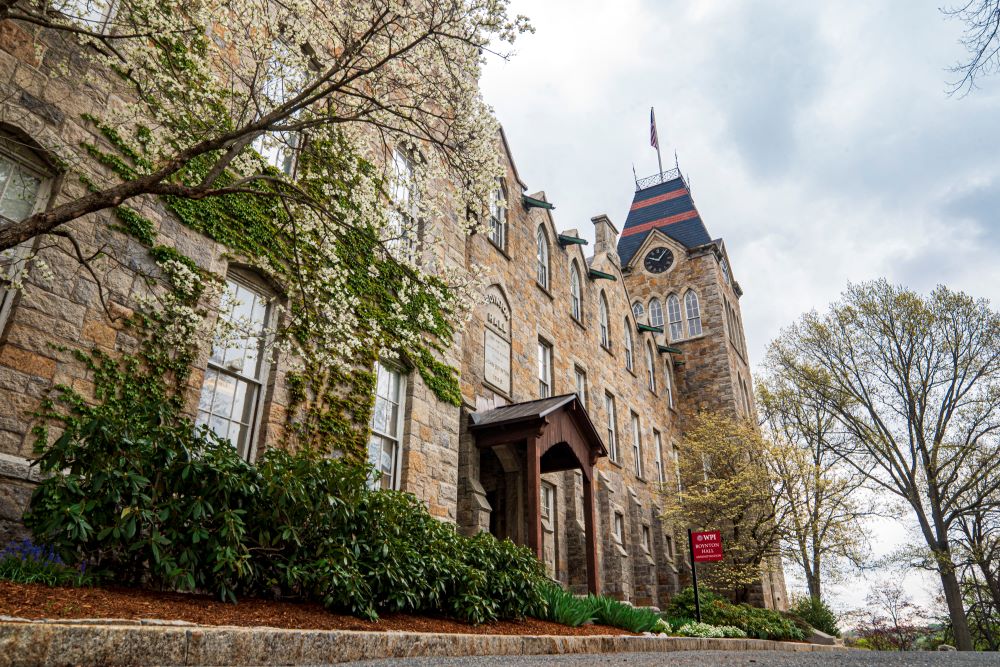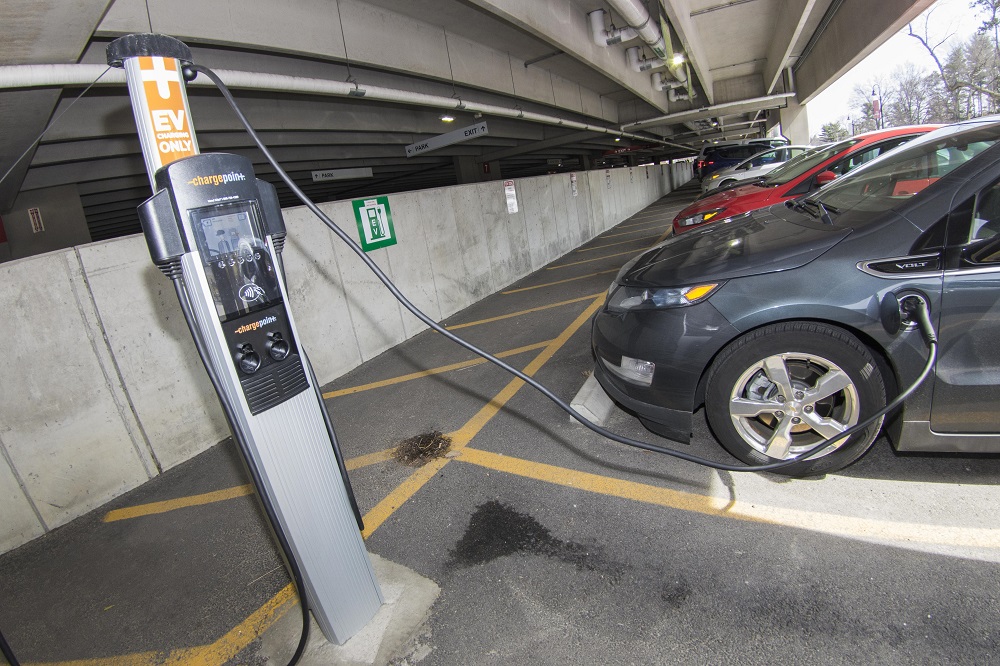Worcester Polytechnic Institute (WPI) has garnered an overall A- for the Institute’s successful efforts to be a green and sustainable campus, according to the 2011 College Sustainability Report Card, released today by the Cambridge, Mass.–based Sustainable Endowments Institute (SEI). Out of 322 schools surveyed, WPI is one of eight Massachusetts schools (and the only one based in Worcester) to score an A- or higher; only 52 schools across the nation received an A- or higher. WPI’s overall grade jumped from a B+ last year to this year’s A-.
The university earned A’s in the categories of "Administration," for the establishment of the President’s Task Force on Sustainability to implement campus sustainability efforts; "Climate Change and Energy," for the installation of a new campus energy management system; "Food and Recycling," for buying more locally produced food and cage-free eggs and hormone- and antibiotic-free pork, chicken, and milk, as well as the overall campus recycling program and food waste reduction efforts; "Green Building," for implementing a trustees-approved policy that calls for all new buildings to meet U.S. Green Building Council LEED standards, and for being home to one LEED Gold and one LEED-certified building (East Hall and Bartlett Center, respectively); "Student Involvement," for WPI’s Student Green Team as well as building Eco-reps, faculty, staff, and resident assistants promoting sustainability during new student orientation; and "Investment Priorities," for investing WPI’s endowment in renewable energy funds.
"Each year the College Sustainability Report Card standard is raised, and making the grade becomes even more challenging," said John Orr, WPI professor of electrical and computer engineering, who chairs the sustainability task force. "This year’s grade of A- is reflective of the dedication and effort of WPI’s faculty, staff, and students, who take pride in the university’s priority to consistently promote the three aspects of sustainability: environmental preservation, economic prosperity, and social equity."
The university’s stellar performance on the 2011 Sustainability Report Card highlights the many environmental initiatives at WPI, as well as the "sustainability sensibility" which is an integral part of the university’s overall academic, research, and administrative endeavors. This recognition also comes on top of last month’s news from The Princeton Review that WPI is one of the most environmentally responsible schools in the nation.
"It is gratifying to see WPI’s many accomplishments in sustainability—both for our campus and in our education and research activities—recognized," said Orr. "Given our very real accomplishments in this area, it is completely appropriate that they receive this positive public visibility. I would like to thank everyone on the President’s Task Force on Sustainability, and all of our students, faculty, and staff for their efforts to make WPI a sustainable community."


